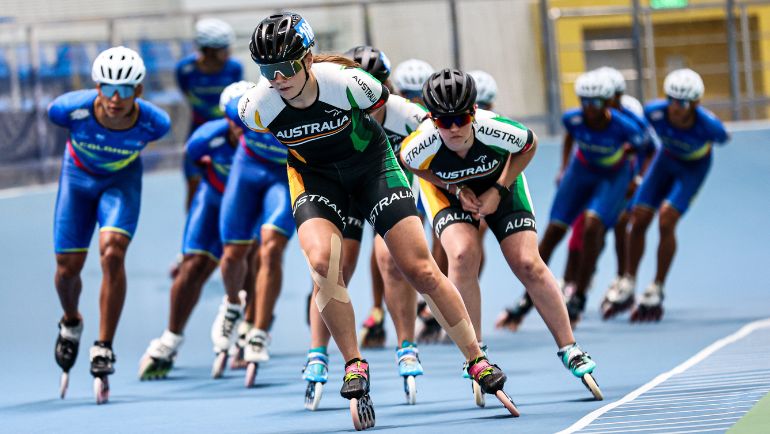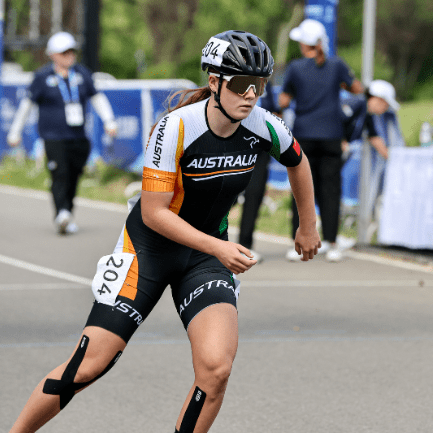Asha's journey

At just 21, Asha Hickford has already represented Australia on the world stage as an in-line speed skater. A sport demanding speed, precision, and courage. But behind her determination is a story of resilience and recovery after sustaining two concussions that changed everything.
“I’m an in-line speed skater and I travel and train around the world doing what I love. A few years ago, I sustained two consecutive concussions, which flipped my sporting career and life upside down.
I went from not knowing what a concussion was to dealing with debilitating daily symptoms that persisted for years despite daily therapies. Every aspect of my life, from sport to daily living, was impacted. I couldn’t leave the house, couldn’t tolerate lights, and had extreme sleep issues. I had problems regulating my heart rate and blood pressure, and couldn’t tolerate driving or any kind of motion due to visual issues.

The moment everything changed
Asha’s first concussion happened during a race in the Netherlands. “I had a big crash mid-race and hit my head hard,” she recalls. “I was confused, but I didn’t know much about concussion, so I thought I’d be fine.” Unaware of the risks, she raced again the following day. “Because my reaction times were slower, I couldn’t avoid another crash ahead of me. That second concussion made everything worse.”
Back home, Asha faced months of confusion and conflicting advice. “No one had really talked to me about concussion before, so I didn’t realise how serious it was going to be if I kept going,” she says. “I tried to get back into training, but I just wasn’t right. I was constantly nauseous, had headaches, and couldn’t do normal things.
“I didn’t even know anything about concussions until I had mine. I thought it would be a week and I’d be fine. But I’ve since realised how many people are dealing with the long-term effects.”
Rehabilitation and resilience
Like many athletes, Asha pushed through, until her symptoms forced her to stop. “Eventually, I realised that if I wanted to keep skating, I needed to actually stop and recover,” she says.
Starting rehabilitation was the turning point. “I’ve made a lot of progress, but I still have ongoing symptoms like nausea, headaches, and heart rate issues. I’ve done neurofeedback, visual and vestibular rehab, and aerobic work. I was told I couldn’t improve after two years, but I have.”
Throughout her recovery, Asha turned to trusted resources for support and understanding. “Synapse’s website was really helpful when I was trying to understand what was happening,” she says. “It gave me good information about brain injury, recovery, and where to get help.”
Returning to the track
After years of hard work, Asha recently returned to competition, racing at the Asian and World Championships. “It’s a balance between training and managing symptoms, but it’s a lot better than it was,” she says. “I’m grateful to be skating again.” Her experience has given her a new passion for raising awareness and helping others. “I want more athletes, coaches, and families to understand that concussion isn’t just a short-term injury,” she says. “Even a mild traumatic brain injury can have serious and long-lasting effects.”
Raising awareness for change
Asha is now using her story to advocate for better understanding and education around concussion and brain injury. “Back yourself and don’t give up. The brain is complex and recovery isn’t linear. There will be days, months, or even years where things feel impossible, but through all the setbacks, there will be better days if you keep pushing.”
Now, Asha is channelling her experience into purpose. “I’m really interested in learning more about brain injury and concussion rehabilitation and want to work in this field after sport,” she says.
Through courage, education, and advocacy, Asha is helping others understand that concussion is never “just a bump.” It’s a serious injury that deserves care, time, and understanding, on and off the track.